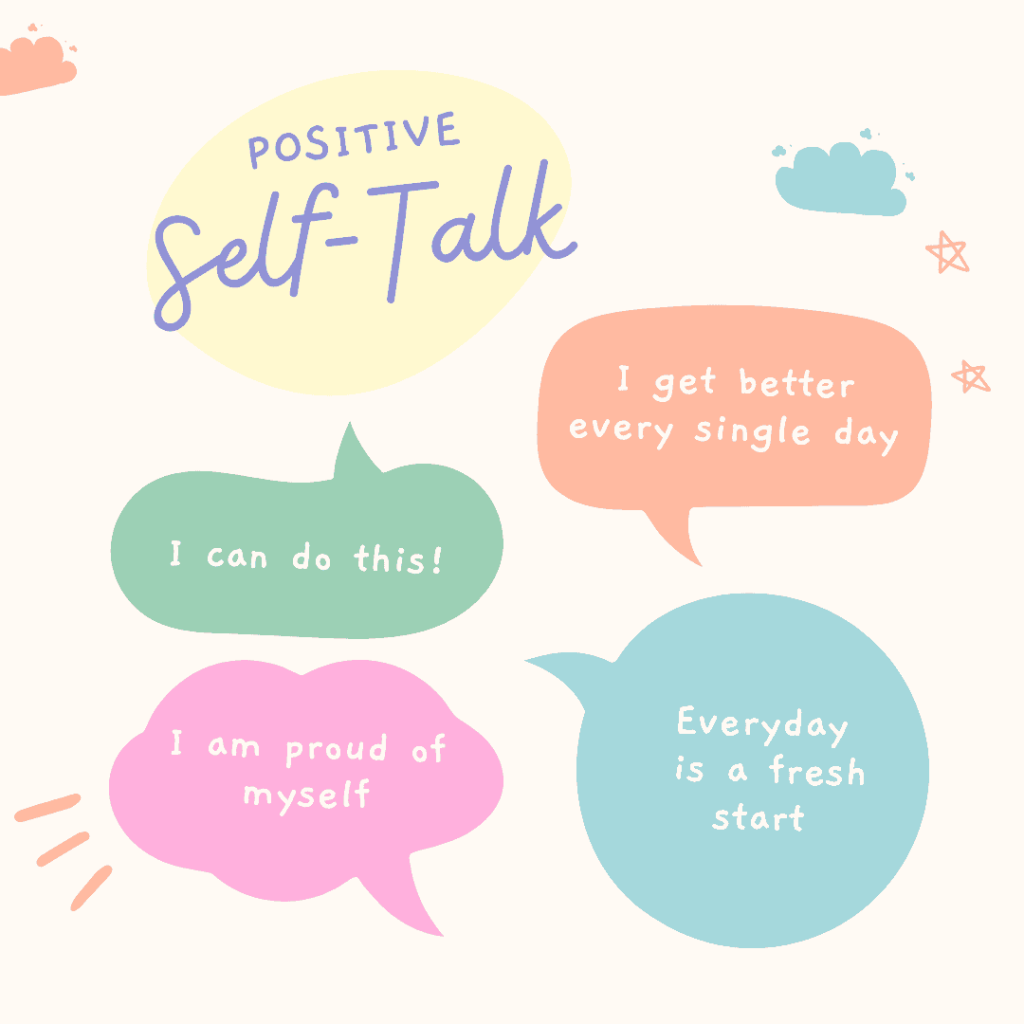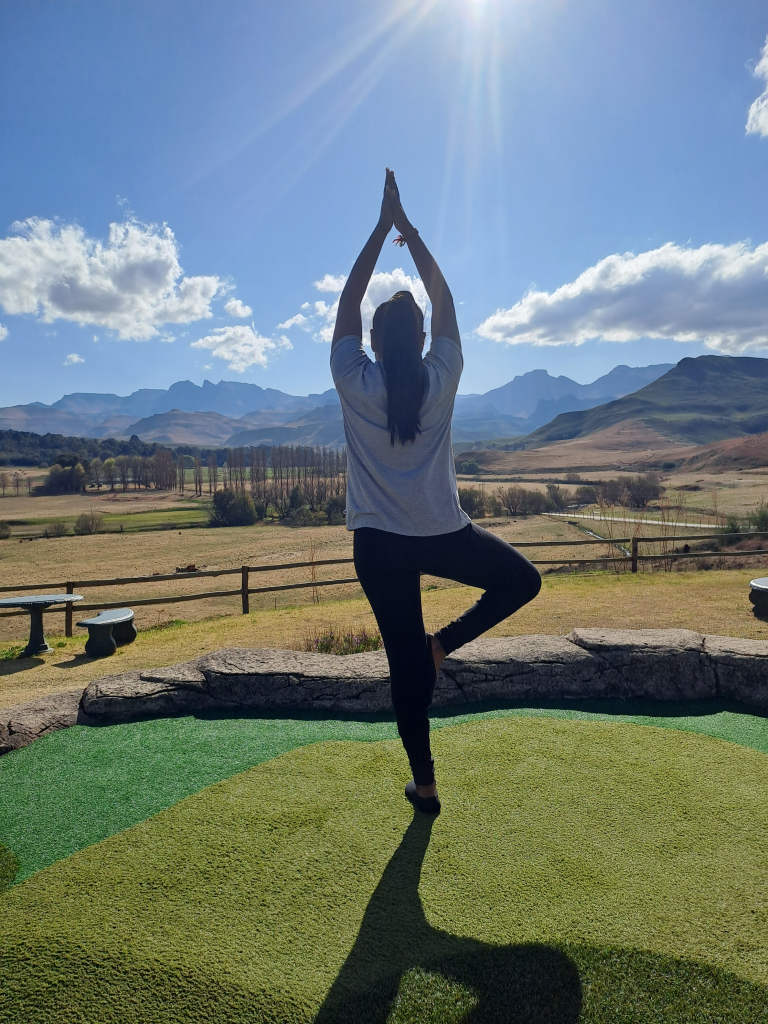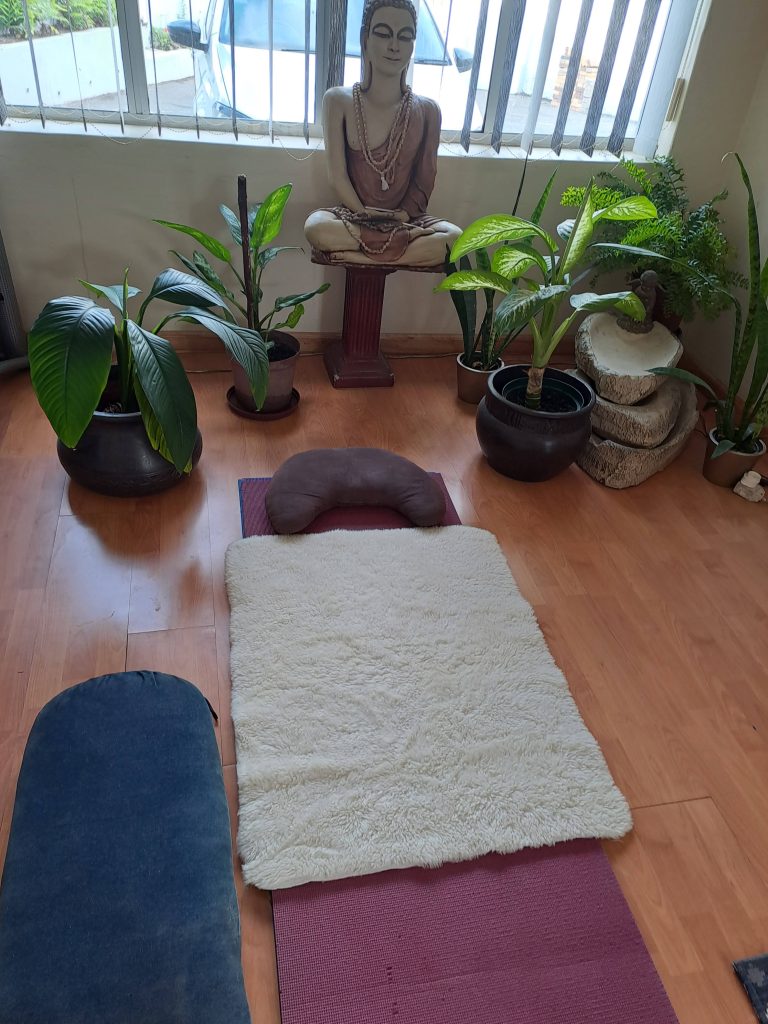In the midst of the volatility and unpredictability that characterize our everyday lives, it is all too easy to feel overwhelmed. And as worry begins to take hold, our thoughts grimly get into a groove of recurrent reflection on all of the worst conceivable consequences from different scenarios. You just can’t stop watching it, exactly like a GIF that you find offensive.
You can, thankfully, interrupt the loop of worrisome thinking patterns that repeat themselves over and over again.

Strategies that I use to calm my anxious mind.
Deep breathing

Breathing is a necessary function that supplies blood cells with oxygen while removing carbon dioxide. Of course, breathing is involuntary—that is, you do it without thought.
But do you know that voluntary or conscious breathing can be a path to a calmer mind?
When you’re anxious, like every other person, you tend to breathe from the chest—short and quick breaths. Breathing this way reduces the oxygen supply to the body, which increases the heart rate and makes you dizzy and tense. This, in turn, will trigger a stress response, which only serves to intensify your state of anxiety.
On the contrary, deep breathing—breathing from your abdomen—increases the oxygen supply to your body and brain, where it activates the parasympathetic nervous system, which induces calmness. It triggers the relaxation response.
The state of profound rest that is known as the relaxation response is one that reverses the physical and emotional reactions that are triggered by stress. Your heart rate and blood pressure will gradually decrease as you enter this space, and the tension in your muscles will begin to gradually decrease.
Breathing techniques—and there are a lot of them—connect you to your body. It moves your awareness away from the anxious thoughts in your mind to your body. Your mind then quietens. You’ll become less stressed and anxious.
So, next time anxiety threatens your peace, let me share with you here a simple breathing exercise that I use to calm my mind down:
- With your shoulders relaxed, inhale deeply and slowly through your nose.
- Slowly hold your breath to a count of four
- Exhale slowly through your mouth while keeping the focus on your face, jaws, shoulders, arms, and tummy relaxed.
- Repeat for several minutes.
This exercise may be done standing, sitting, or lying down. You can do it anywhere, whenever the need arises. You should practice it daily, not only when you are anxious to get used to it.
Positive self-talk

The technique of having a conversation with oneself during the entirety of one’s waking hours is known as positive self-talk. But what percentage of it is actually useful? Your ability to communicate with your inner self and the way it interprets the events that occur in your life have a significant influence on the amount of tension and anxiety that you experience.
You will create unnecessary anxiety in your mind when your self-talk is predominantly negative. You tend to see things as worse than they actually are; see yourself as incapable of facing your challenges; refuse to see the brighter side of situations; and fall into a pattern of futile reflection that only takes away your peace of mind.
Fortunately, you can skip this destructive inner dialogue with your mind.
Here are some ways you can break the cycle of negative self-talk and reduce your anxiety.
- Observe your mind. The first step is to become aware of the content of your internal dialogue. Observe the things you say to yourself as they arise, and note how they affect you. It helps to write down your feelings and thoughts as you become conscious of them.
- Change your thoughts: As you watch your mind, you’ll be able to slow down your incessant self-chatter and catch any negative self-talk as it arises. You can then gently steer your mind towards more positive thoughts.
- Replace a negative perception with something more positive: For instance, you may be stuck in traffic. But instead of railing against the situation in frustration (which doesn’t make the cars move any faster) and stressing over how much time you’ve wasted, you can use that time to catch up on some knowledge by listening to a podcast or an audiobook.
- Question your self-limiting talks: While facing a difficult situation, your usually anxious self will say things like, “I can’t handle this.” This will only increase your anxiety. But when you notice this thought arising, simply ask, “What can I do in this situation?” This reduces your stress because it will prompt you to start searching for solutions. As you become more hopeful, your imagination opens you up to more possibilities.
Go to the gym or do yoga (ASAP)

A brisk walk for about 10 minutes may be what you need to rid your mind of anxiety. Several studies have concluded that exercise helps relieve anxiety, steady your mood, decrease muscle tension, and improve sleep quality.
When you work up a sweat in the gym, at home, or outdoors, endorphins—body chemicals that make you feel good—are released.
Endorphins act effectively as natural painkillers and also help you sleep better. While not getting enough sleep can have a negative impact on your overall health, getting enough sleep might help you feel less stressed out.
Again, working out vigorously requires some concentration, which takes your mind off your worries. This breaks the cycle of repetitive negative thoughts that induce anxiety.
How much exercise is good enough?
Working out consistently for 30 minutes daily for 3 to 5 days may significantly calm down your anxieties. However, even as little as 10 minutes of physical activity will have an effect on your mood. So, next time you feel overwhelmed, whether you’re at work, at an event, or anywhere, take a brief, brisk walk around the block.
How do you stay motivated to lead an active lifestyle?

The trick is not to see activity as a chore.
Find things you love, make reasonable objectives, and stay optimistic to stay motivated for an active lifestyle. Find activities you like, including hiking, dancing, or team sports. Setting reasonable objectives that give you a sense of success keeps you motivated. Change your routine to avoid boredom.Share experiences and support one another with friends, family, or fitness groups. Track your progress to celebrate successes and adjust your strategy. Finally, emphasise the long-term health advantages of an active lifestyle, including physical and mental health. To maintain motivation, remind yourself of the joy and energy of being active.
You should take up activities that you enjoy, and then you won’t need any motivation to stick to a regular routine. There are numerous other advantages to exercising. Apart from reducing anxiety, exercising also reduces your risk of cardiovascular diseases and prevents discomfort in the body.
Call your bestie

It’s never an easy call, but one of the best things you can do whenever anxiety threatens is to call someone. A special friend with whom you can confide your feelings at that particular time. Sharing your thoughts with others can relieve stress.
A situation may seem threatening and overwhelming to you. This could be because you have been keeping it to yourself. If you talk to a friend about it, you’ll be pleasantly surprised at the new perspective that they may come up with that suddenly makes your issues small. They may even give you solutions that your anxious mind could never have come up with.
When you are troubled, think of someone close that you trust and feel comfortable opening up to. Say just how you feel without fear of being judged. You most likely believe the problems that keep you up at night are uniquely yours, but the truth is that millions of others have faced similar challenges before.
Self acceptance

When you are stressed and anxious, accepting your situation and your anxiety is usually the last thing on your mind. All your efforts are channeled towards eliminating anxiety from your life.
What if I told you that fighting your anxiety only feeds it and increases it? I know it sounds ironic, but when you battle anxiety head-on, you promote the idea that you’ll become a better, happier person once you’re free of anxiety. This increases your anxiety because you will now be under pressure to strive to be better. Since you believe you aren’t good enough as you are now,.
The antidote to this is accepting yourself totally—anxiety, warts, and all. The practice of self-acceptance frees you from nagging negative thoughts. It encourages you to look at yourself with kinder eyes.
Anxiety will hardly survive in such an internal environment. Here’s how you can accept yourself to ease through any life situation:
- Telling yourself you can handle any situation without experiencing fear often triggers even greater fear and anxiety. Accept that it’s normal to be scared. Then do what you have to do.
- Attaching your identity to that of an anxiety sufferer only strengthens it. Take ownership of your feelings and accept your anxiety totally, without judgment. This will take away some wind from its sail.
- Finally, calm yourself down by accepting the absolute truth that anxiety is not who you are. It’s a transient experience that is sure to go; therefore, remain kind to yourself as you work through your journey.
Wise Words!
We all have apprehensive thoughts every now and then. But when you constantly struggle with stress and anxiety, it’s time you act. These simple tips, when practiced, will help calm down your anxious mind. Explore your inner world with mindfulness to find peace. Acknowledge and accept your worried thoughts without judgment to create a peaceful space. Deeply inhale and exhale to cleanse and relieve tension. Disconnect from future uncertainty and focus on the now. Accept human flaws and practice self-compassion. meditation, outdoor walks, and creativity to promote well-being. Talk to reliable friends about your feelings. Try to be thankful and focus on the good things in life. Peace is a journey, not an endpoint. Be kind to yourself and celebrate each modest step toward inner peace. May self-care and mindfulness calm your nervous thoughts on this journey. It works for me; it should work for you. Always remember that you’re in control.
